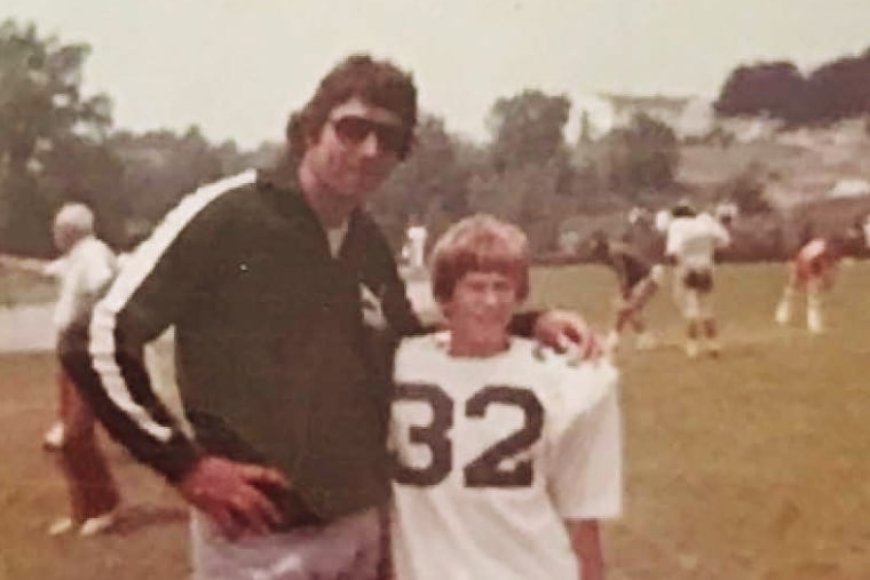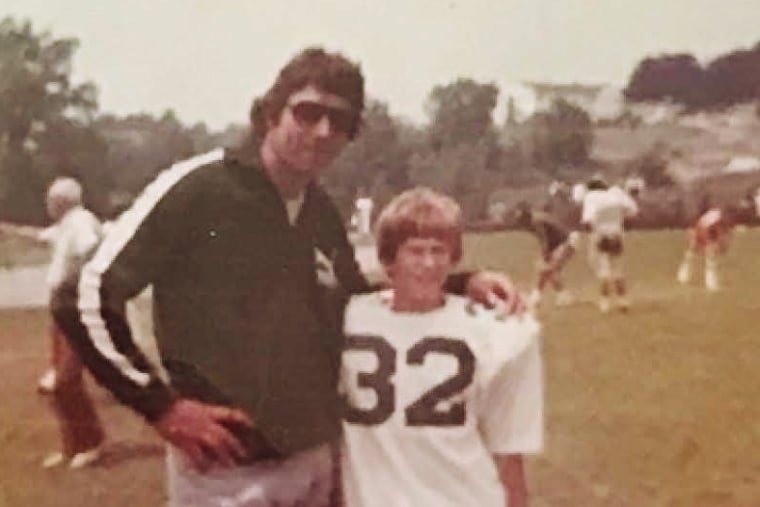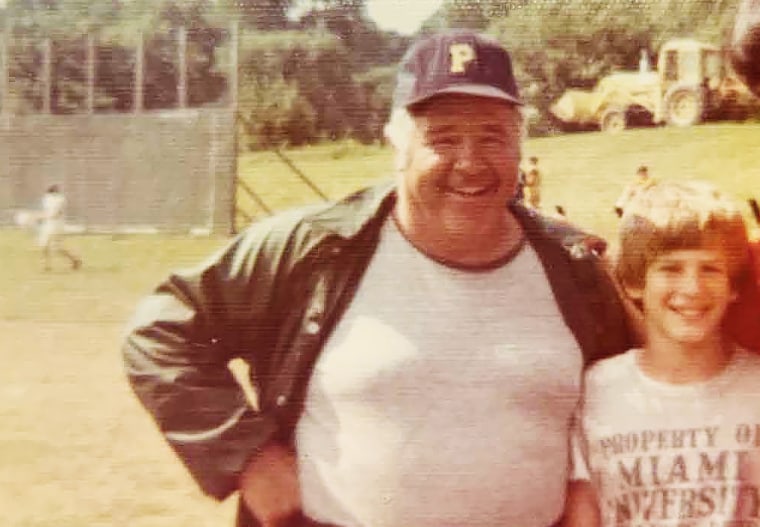Joe Namath accused of allowing sexual abuse at his football camp
Joe Namath accused of allowing sexual abuse at his football camp NBC News

A Florida Real Estate Broker Accuses Joe Namath of Ignoring Sexual Abuse at Football Camps
A Florida real estate broker, Philip Lyle Smith, has filed a lawsuit accusing New York Jets icon Joe Namath of turning a blind eye to the sexual abuse he endured at Namath’s football camps in the 1970s. Smith claims that he was victimized by Philip Foglietta, a longtime football coach at Poly Prep Country Day School in Brooklyn who passed away in 1998.

Smith alleges that Namath, along with co-defendants John Dockery (a former Jets defensive back) and Nichols College in Massachusetts (the site of the camps), should have noticed obvious warning signs of the abuse. Namath and Dockery operated their camp under the company Pro Camps Ltd., which is also named as a defendant in the lawsuit. According to Smith’s attorney, Arthur Middlemiss, Foglietta subjected Smith to continuous sexual conduct, including grooming, oral sexual conduct, and other forms of sexual abuse, from 1970 to 1977 when Smith was between the ages of 10 and 17.
Smith initially filed the civil complaint in December 2019, but the case has been delayed due to a backlog of sexual abuse lawsuits in New York courts. These lawsuits were made possible by the Child Victims Act, which lifted the statute of limitations on such cases.
The defense is challenging Smith’s right to sue in New York state since the camps in question took place in Vermont and Massachusetts. They are also questioning whether Namath and Dockery are the appropriate defendants as individuals. These matters are currently being reviewed by a state appeals court.

Smith attended the camp as a 12-year-old in the summer of 1972 as a guest of Foglietta, who knew him from Poly Prep. Smith did not pay to attend the camp, was significantly smaller than the other campers, and did not participate in many of the drills. Instead of sleeping with the other campers, Smith shared a room with Foglietta, who would have been 50 years old at the time.

According to the lawsuit, all of these conditions should have been clear warning signs of the sexual abuse that occurred that summer and in subsequent camps until 1975. The lawsuit claims that Namath, Dockery, and the other defendants ignored these red flags, allowing Foglietta to escalate the level of abuse.
Foglietta passed away more than a decade before Poly Prep was sued for allegedly covering up years of the football coach’s sexual abuse. The school eventually settled the lawsuit and apologized for not thoroughly investigating the claims against Foglietta.
Attempts to reach Poly Prep for comment were unsuccessful, and attorneys for Namath, Dockery, and Nichols College declined to comment.
Joe Namath is a Hall of Fame quarterback and is widely regarded as one of the most famous players in New York Jets history. He led the team to its only Super Bowl victory in 1969.
If you or someone you know has been sexually assaulted:
- Call the National Sexual Assault Telephone Hotline at 1-800-656-4673.
- Visit RAINN’s online chat service at https://www.rainn.org/get-help.
Confidential chats are available in English and Spanish.
Contributors:
- David K. Li – Senior Breaking News Reporter for NBC News Digital
- Helen Kwong
- Toby Lyles
SDGs, Targets, and Indicators Analysis
1. Which SDGs are addressed or connected to the issues highlighted in the article?
- SDG 3: Good Health and Well-being
- SDG 5: Gender Equality
- SDG 16: Peace, Justice, and Strong Institutions
The article discusses sexual abuse and the failure to address it, which relates to SDG 3’s goal of promoting good health and well-being by addressing and preventing sexual abuse. It also touches on gender equality, as the victim alleges that the defendants turned a blind eye to the abuse. Additionally, the article mentions the legal proceedings surrounding the case, which relates to SDG 16’s goal of promoting peace, justice, and strong institutions.
2. What specific targets under those SDGs can be identified based on the article’s content?
- SDG 3.7: By 2030, ensure universal access to sexual and reproductive health-care services, including for family planning, information and education, and the integration of reproductive health into national strategies and programs.
- SDG 5.2: Eliminate all forms of violence against all women and girls in the public and private spheres, including trafficking and sexual and other types of exploitation.
- SDG 16.3: Promote the rule of law at the national and international levels and ensure equal access to justice for all.
The targets identified are relevant to the issues discussed in the article. SDG 3.7 aims to ensure universal access to sexual health services and education, which would help prevent sexual abuse. SDG 5.2 focuses on eliminating all forms of violence against women and girls, including sexual exploitation. SDG 16.3 emphasizes promoting the rule of law and ensuring equal access to justice, which is crucial in addressing cases of sexual abuse.
3. Are there any indicators mentioned or implied in the article that can be used to measure progress towards the identified targets?
- Number of reported cases of sexual abuse
- Number of prosecutions and convictions for sexual abuse
- Availability and accessibility of sexual and reproductive health-care services
The article mentions the sexual abuse experienced by the victim, which indicates the existence of cases that can be reported and measured. The progress towards the targets can be measured by tracking the number of reported cases, prosecutions, and convictions for sexual abuse. Additionally, the availability and accessibility of sexual and reproductive health-care services can be assessed to measure progress towards SDG 3.7.
Table: SDGs, Targets, and Indicators
| SDGs | Targets | Indicators |
|---|---|---|
| SDG 3: Good Health and Well-being | SDG 3.7: By 2030, ensure universal access to sexual and reproductive health-care services, including for family planning, information and education, and the integration of reproductive health into national strategies and programs. | – Availability and accessibility of sexual and reproductive health-care services. |
| SDG 5: Gender Equality | SDG 5.2: Eliminate all forms of violence against all women and girls in the public and private spheres, including trafficking and sexual and other types of exploitation. | – Number of reported cases of sexual abuse. – Number of prosecutions and convictions for sexual abuse. |
| SDG 16: Peace, Justice, and Strong Institutions | SDG 16.3: Promote the rule of law at the national and international levels and ensure equal access to justice for all. | – Number of prosecutions and convictions for sexual abuse. – Availability and accessibility of legal services for victims of sexual abuse. |
Behold! This splendid article springs forth from the wellspring of knowledge, shaped by a wondrous proprietary AI technology that delved into a vast ocean of data, illuminating the path towards the Sustainable Development Goals. Remember that all rights are reserved by SDG Investors LLC, empowering us to champion progress together.
Source: nbcnews.com

Join us, as fellow seekers of change, on a transformative journey at https://sdgtalks.ai/welcome, where you can become a member and actively contribute to shaping a brighter future.







